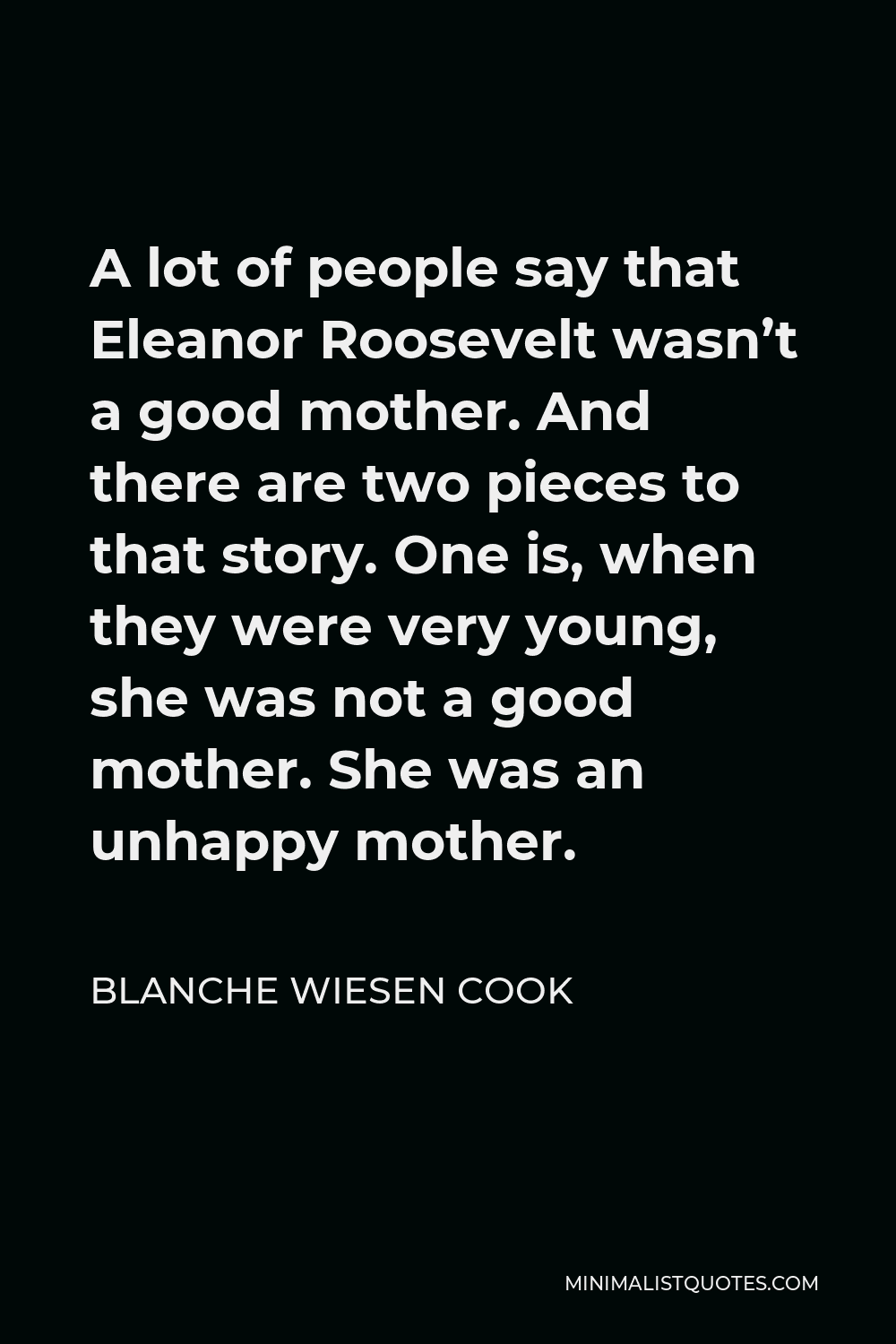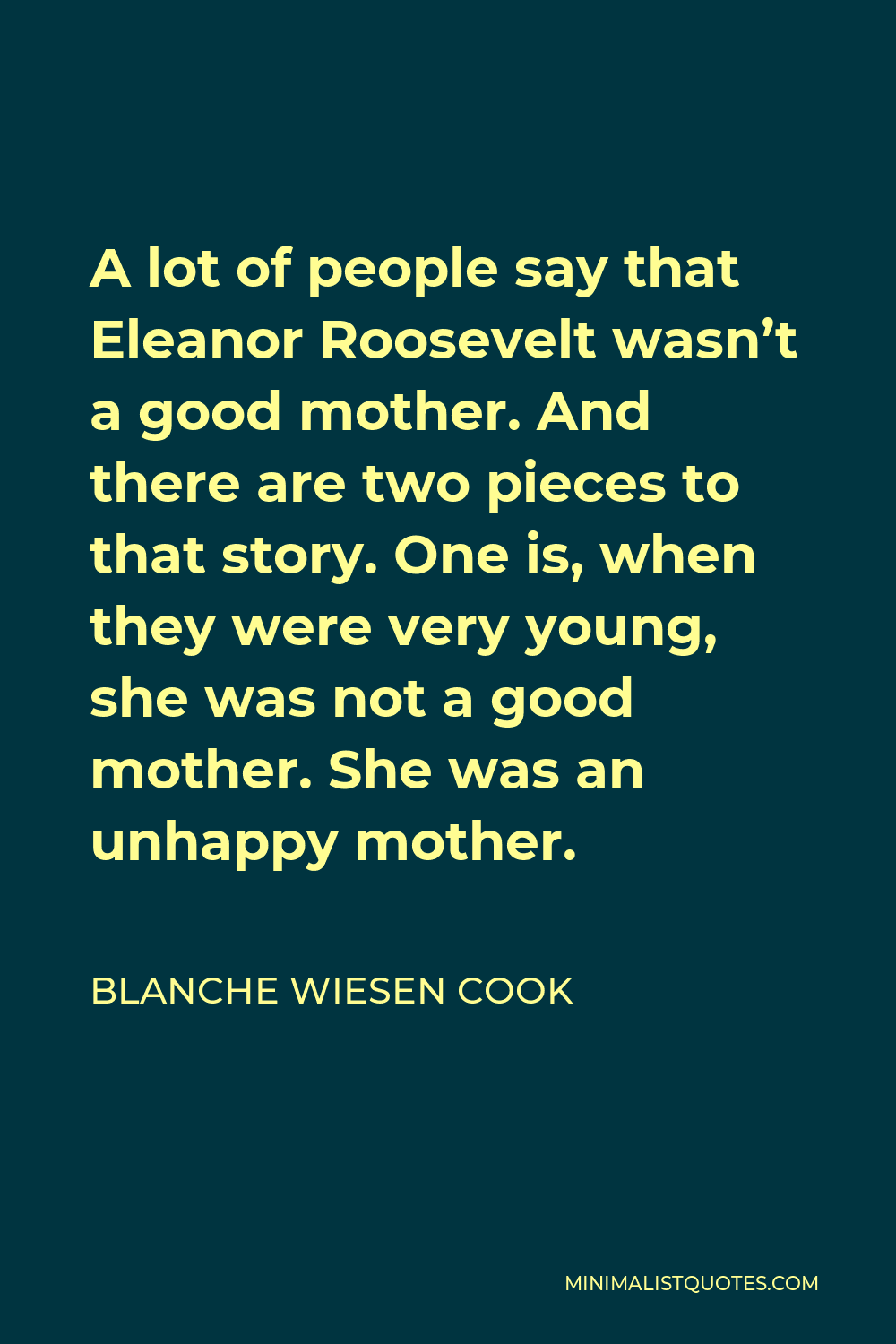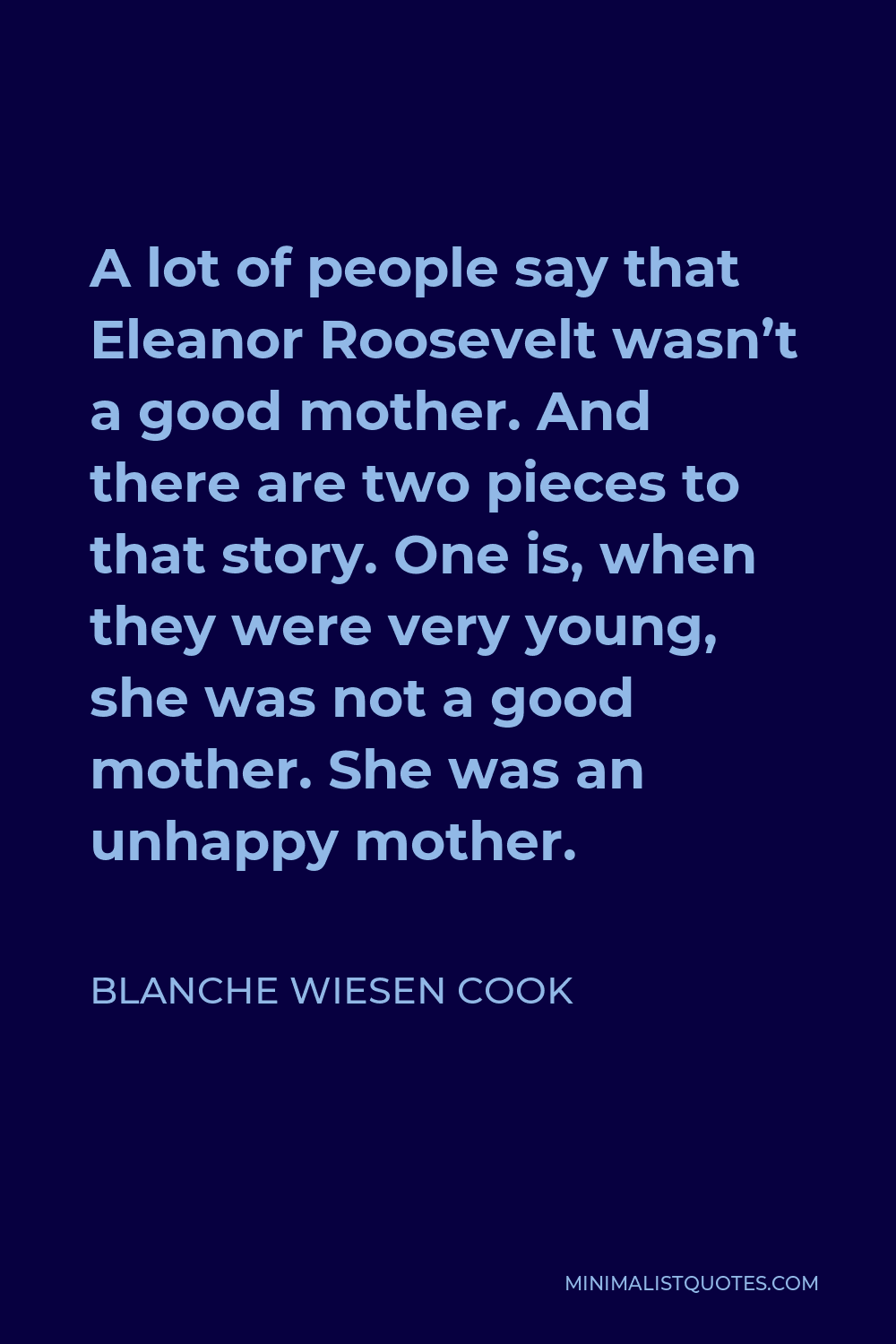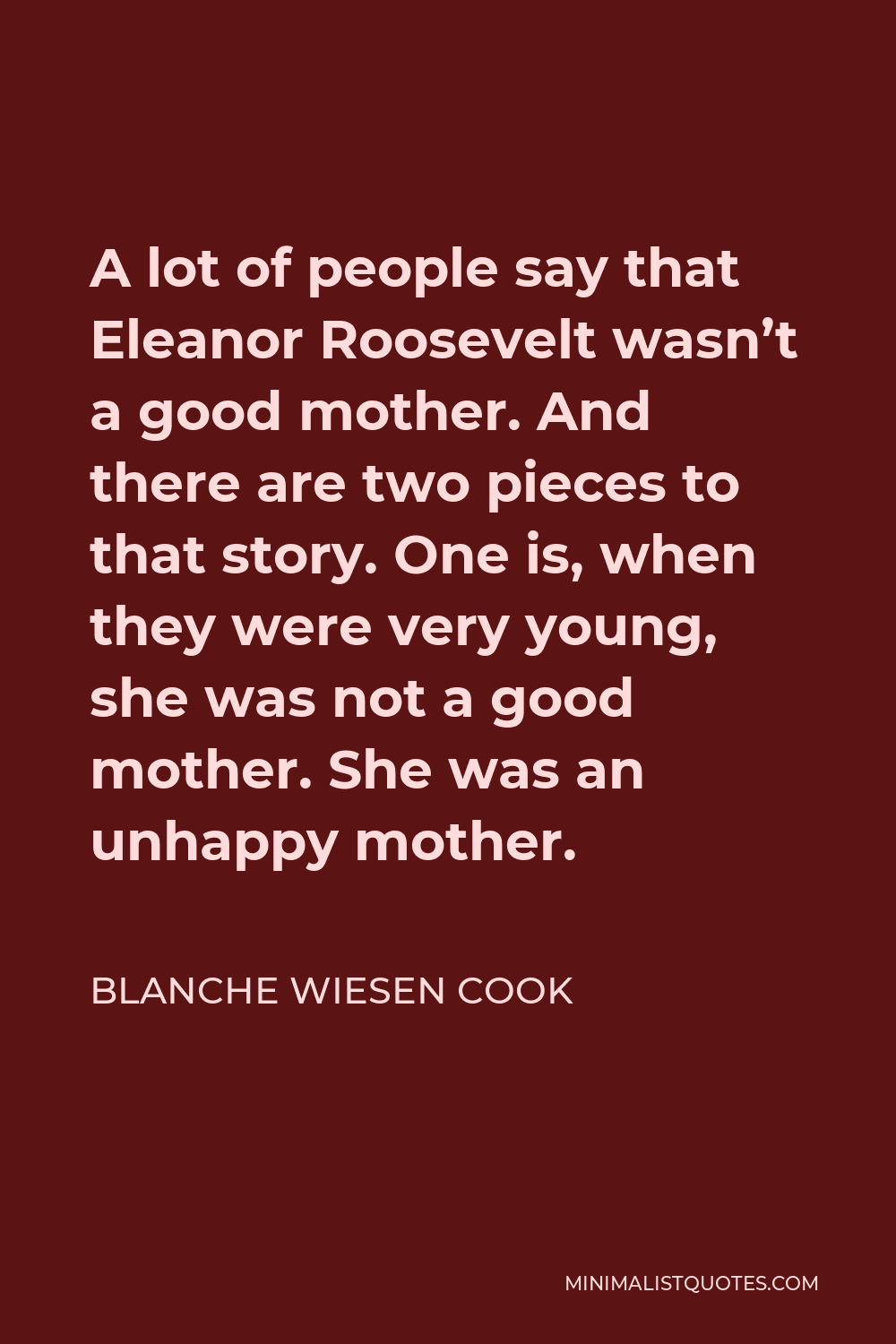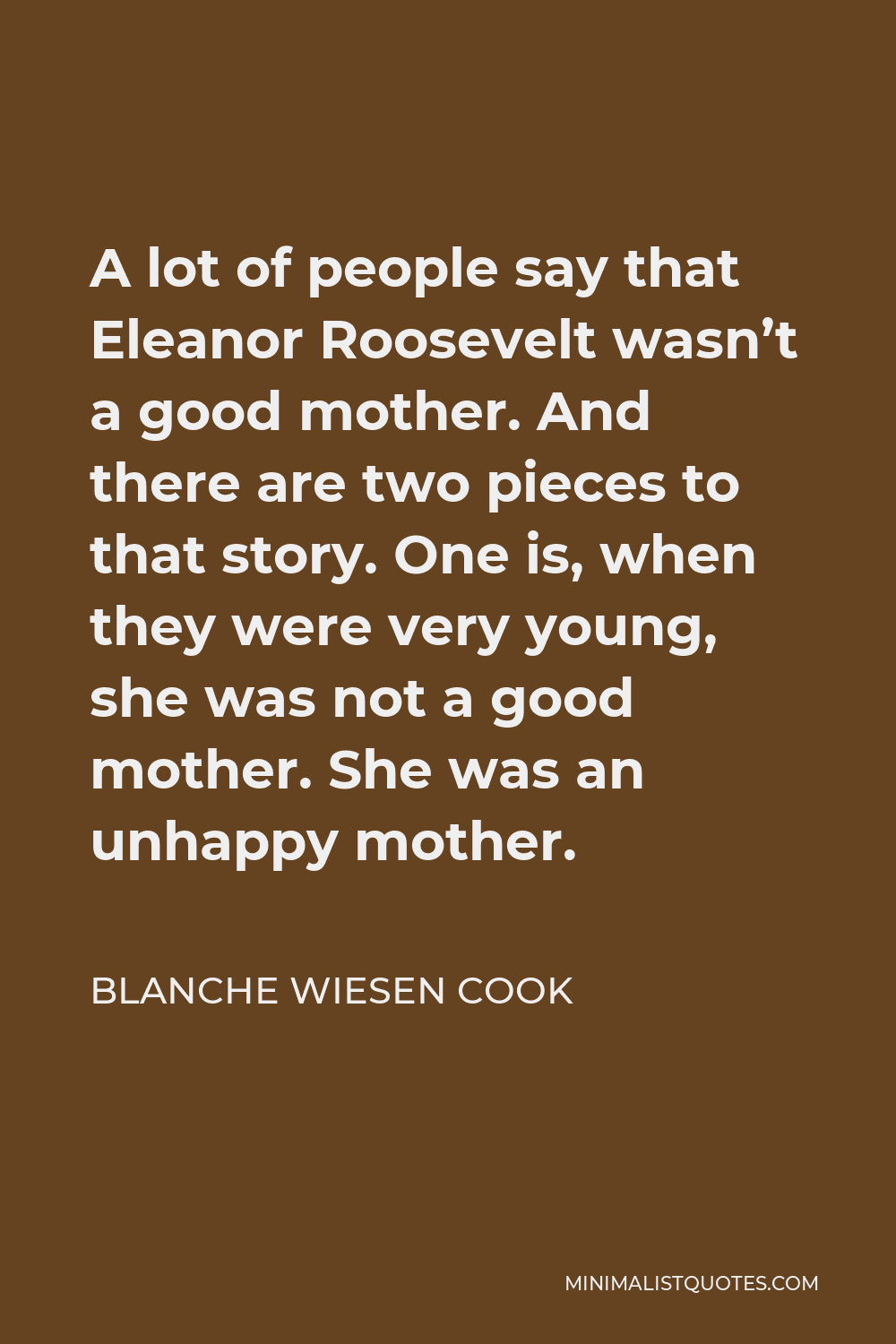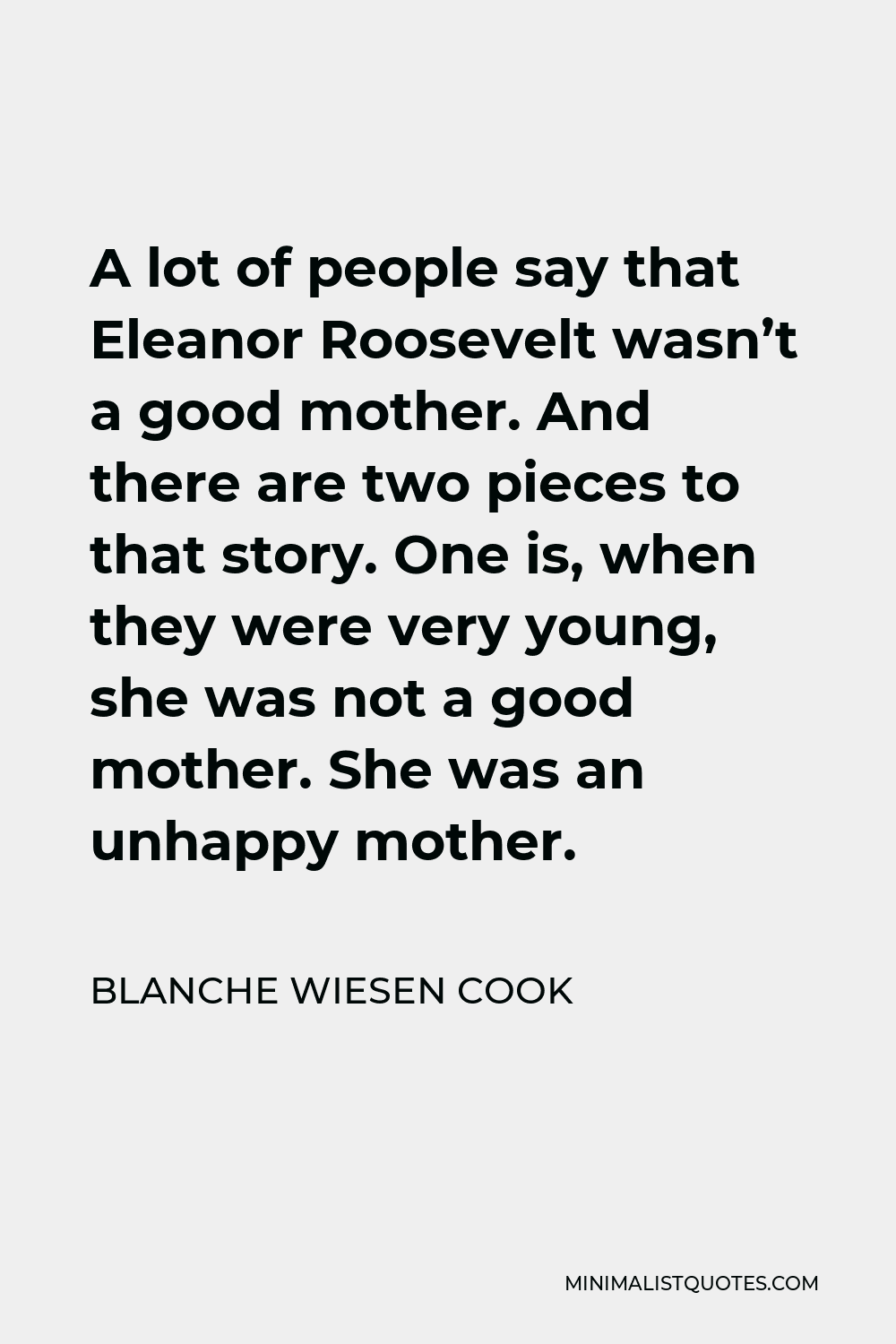Also, she spoke perfect French. She grew up speaking French. She’s now at a french-speaking school where, you know, girls are coming from all over the world. Not everybody speaks French.
BLANCHE WIESEN COOKA lot of people say that Eleanor Roosevelt wasn’t a good mother. And there are two pieces to that story. One is, when they were very young, she was not a good mother. She was an unhappy mother.
More Blanche Wiesen Cook Quotes
-





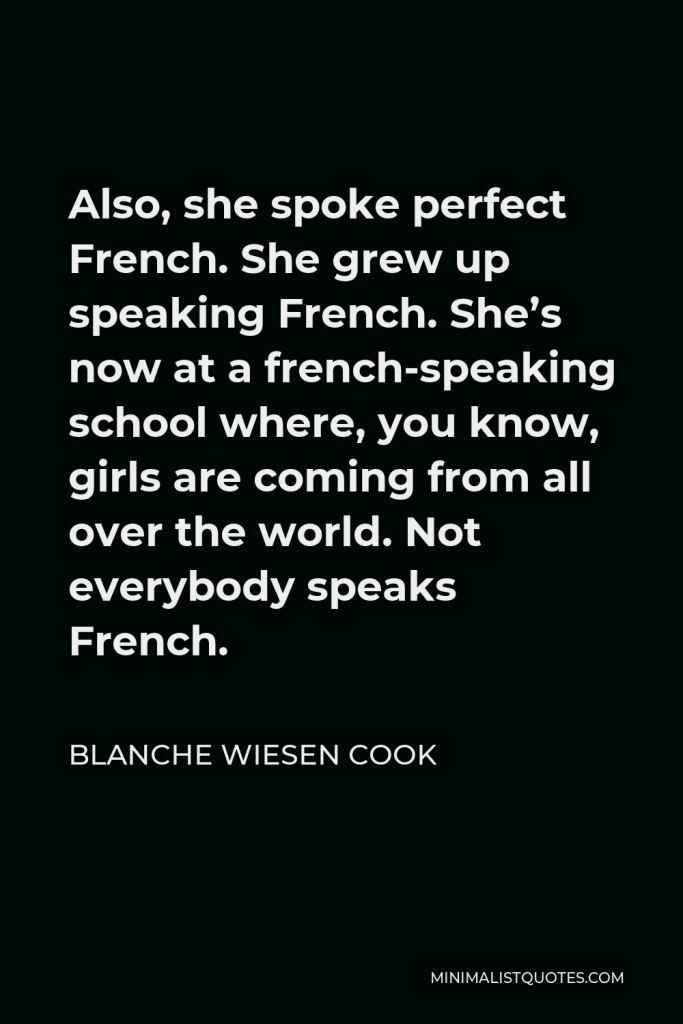

-





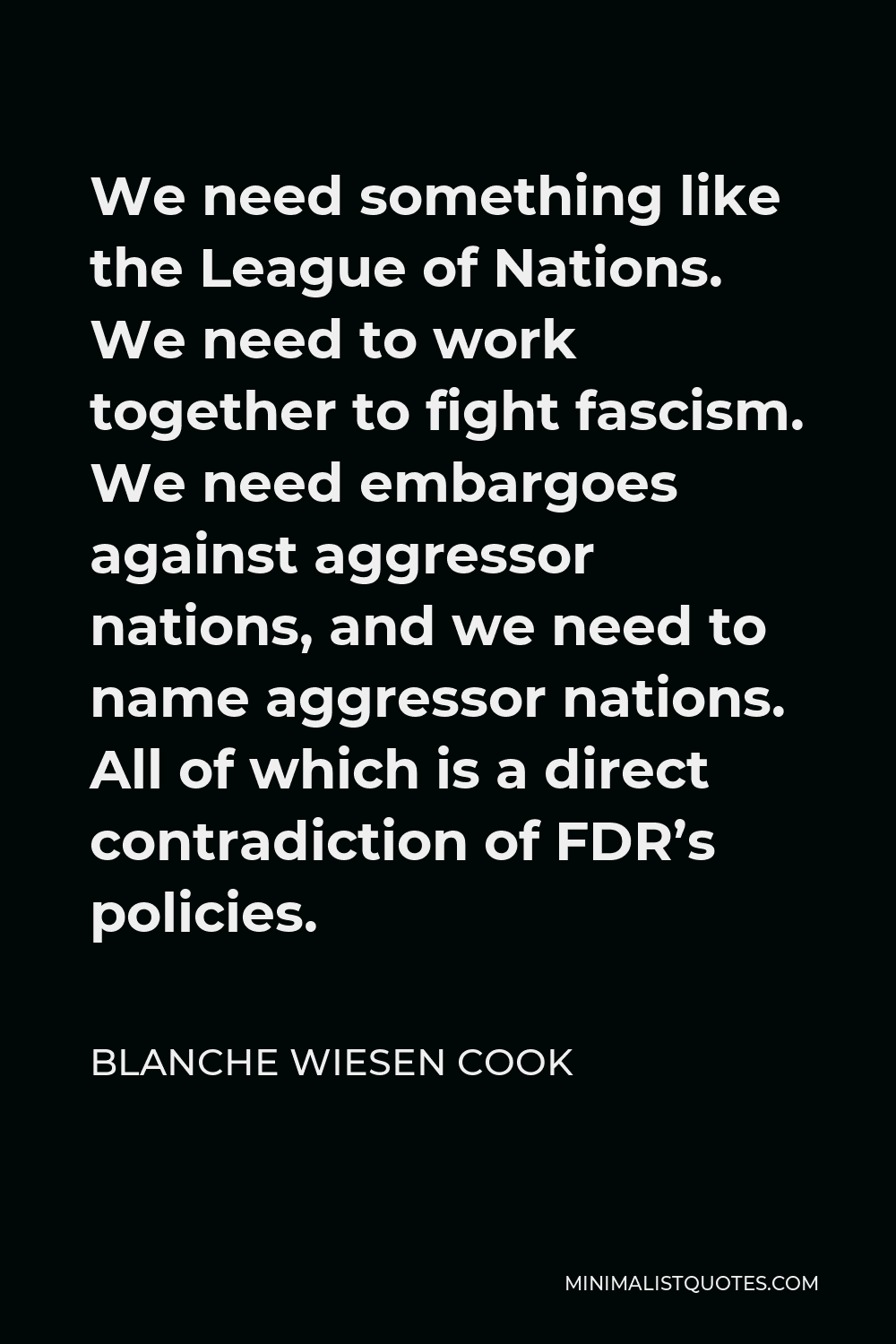
We need something like the League of Nations. We need to work together to fight fascism. We need embargoes against aggressor nations, and we need to name aggressor nations. All of which is a direct contradiction of FDR’s policies.
BLANCHE WIESEN COOK -





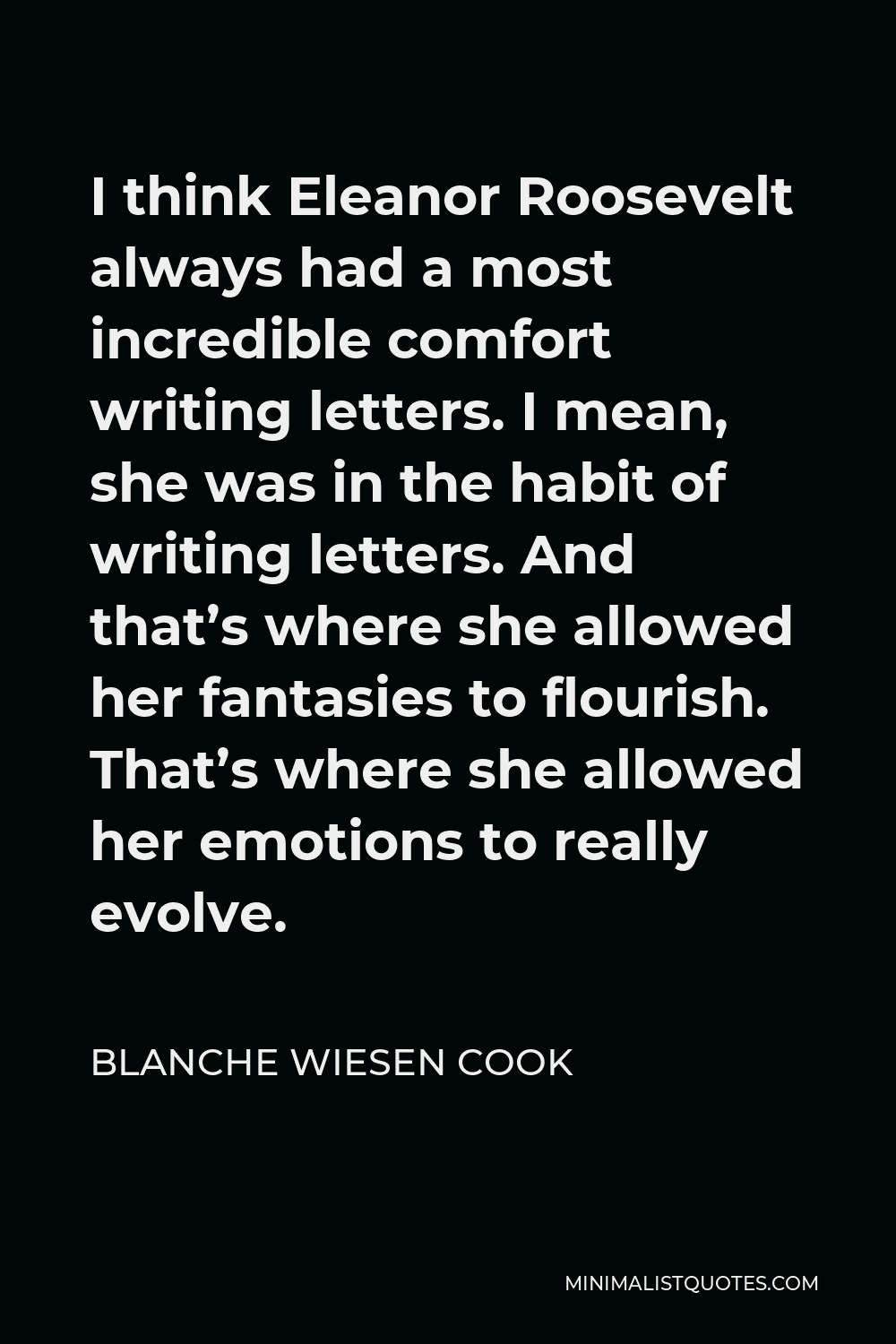
I think Eleanor Roosevelt always had a most incredible comfort writing letters. I mean, she was in the habit of writing letters. And that’s where she allowed her fantasies to flourish. That’s where she allowed her emotions to really evolve.
BLANCHE WIESEN COOK -





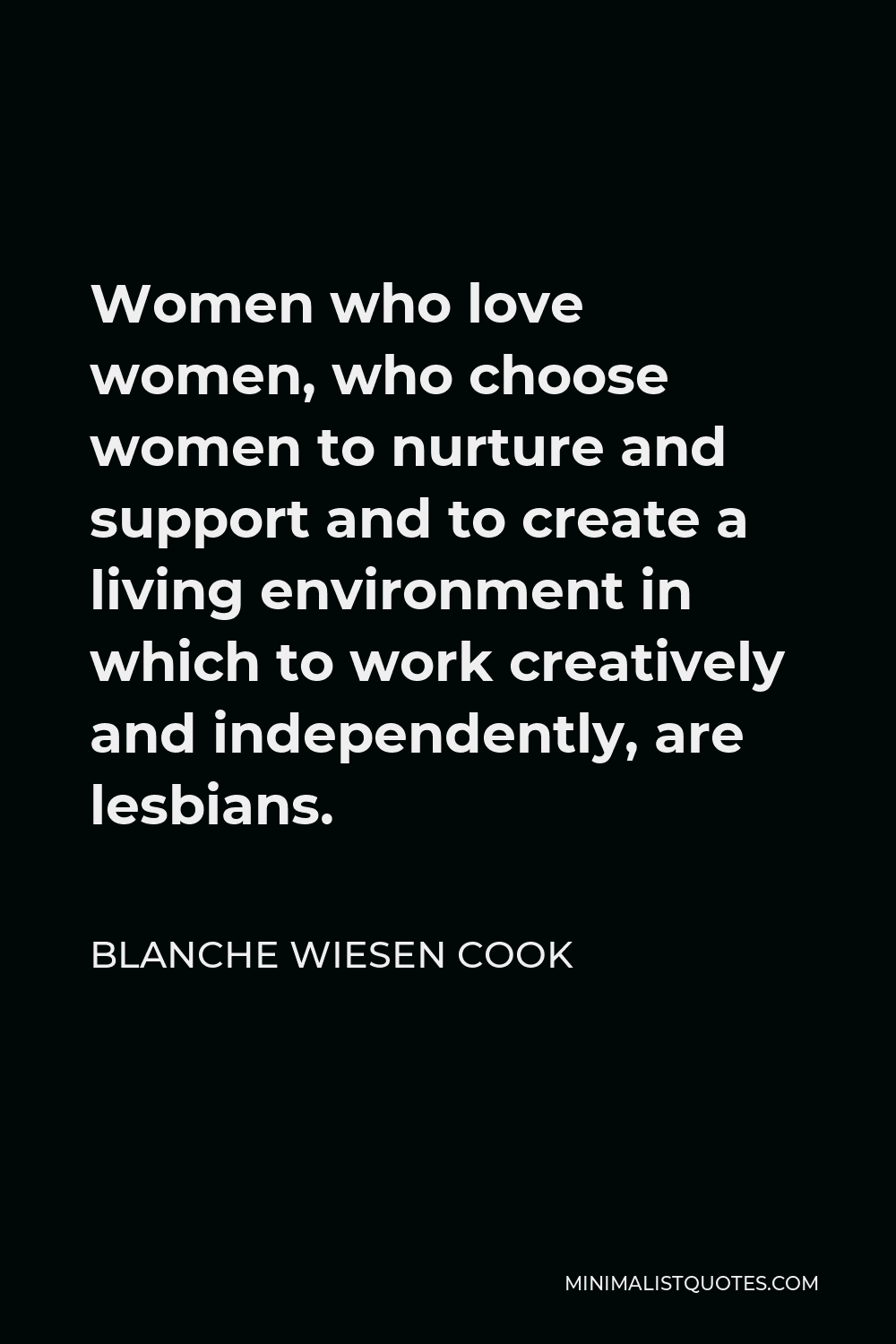
Women who love women, who choose women to nurture and support and to create a living environment in which to work creatively and independently, are lesbians.
BLANCHE WIESEN COOK -





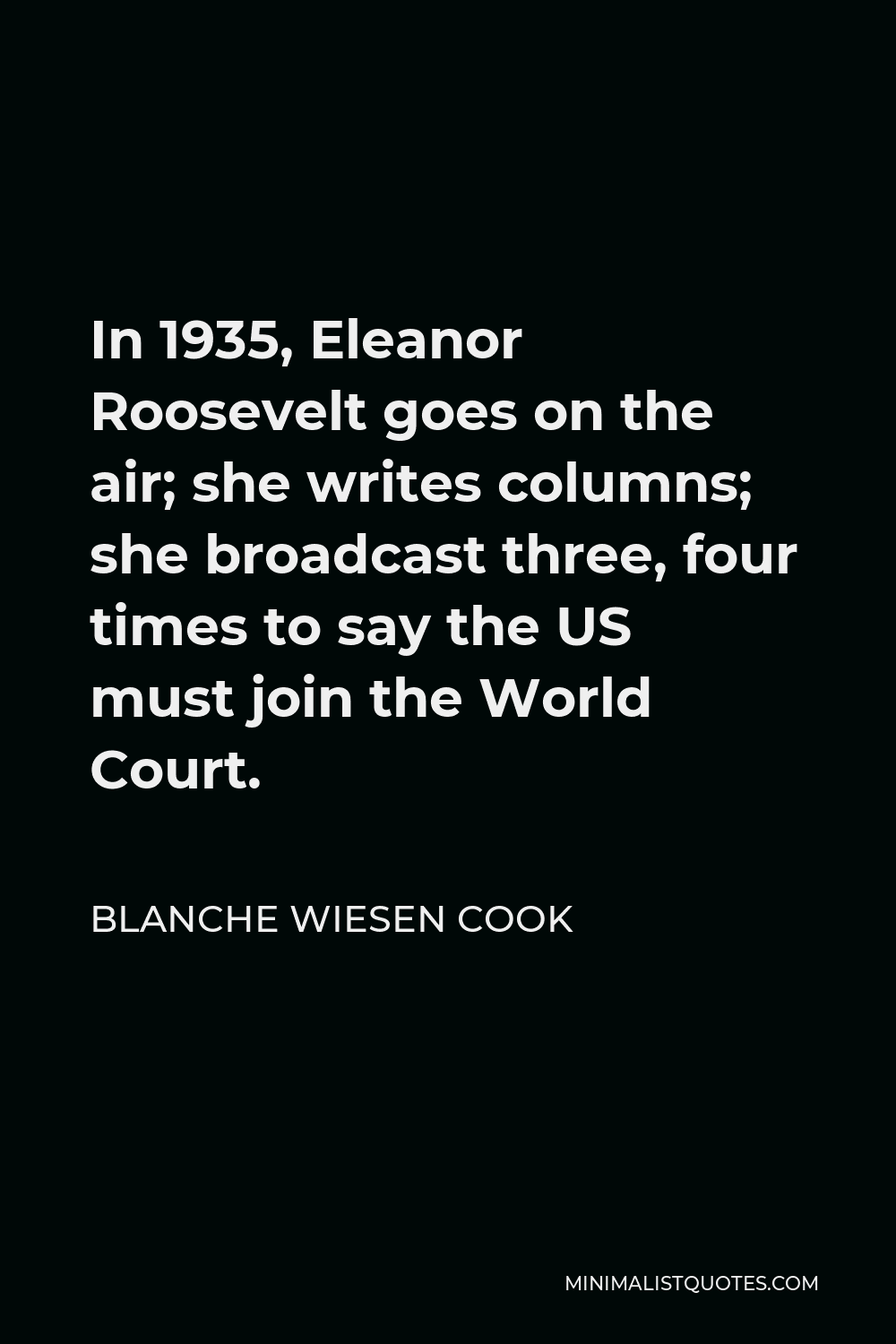
In 1935, Eleanor Roosevelt goes on the air; she writes columns; she broadcast three, four times to say the US must join the World Court.
BLANCHE WIESEN COOK -







He loved to sing. He loved to have fun. And he wrote beautiful letters, just as her father did, which – alas and alack – Eleanor Roosevelt destroyed. But she refers to his beautiful letters. And she was charmed by him.
BLANCHE WIESEN COOK -





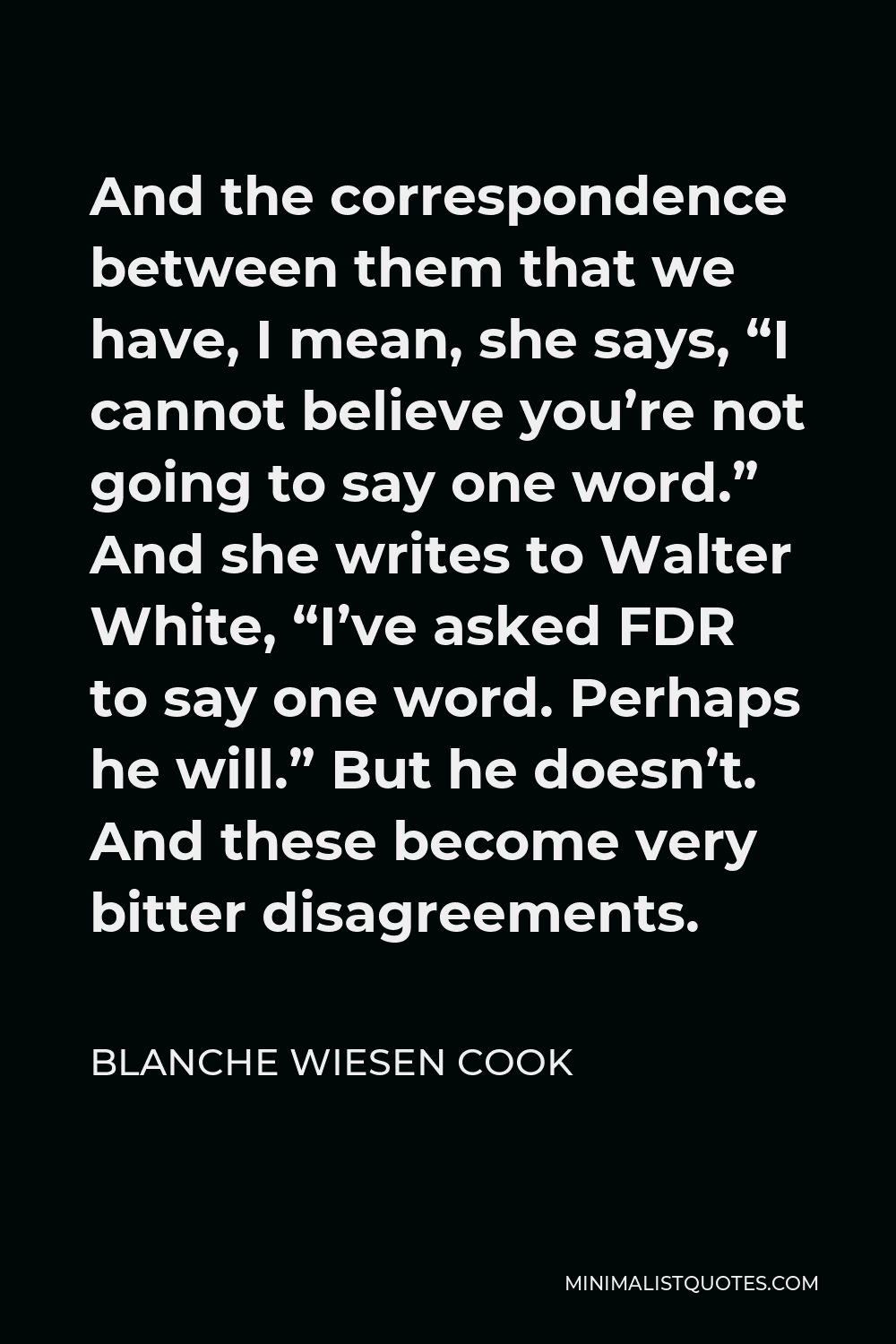
And the correspondence between them that we have, I mean, she says, “I cannot believe you’re not going to say one word.” And she writes to Walter White, “I’ve asked FDR to say one word. Perhaps he will.” But he doesn’t. And these become very bitter disagreements.
BLANCHE WIESEN COOK -





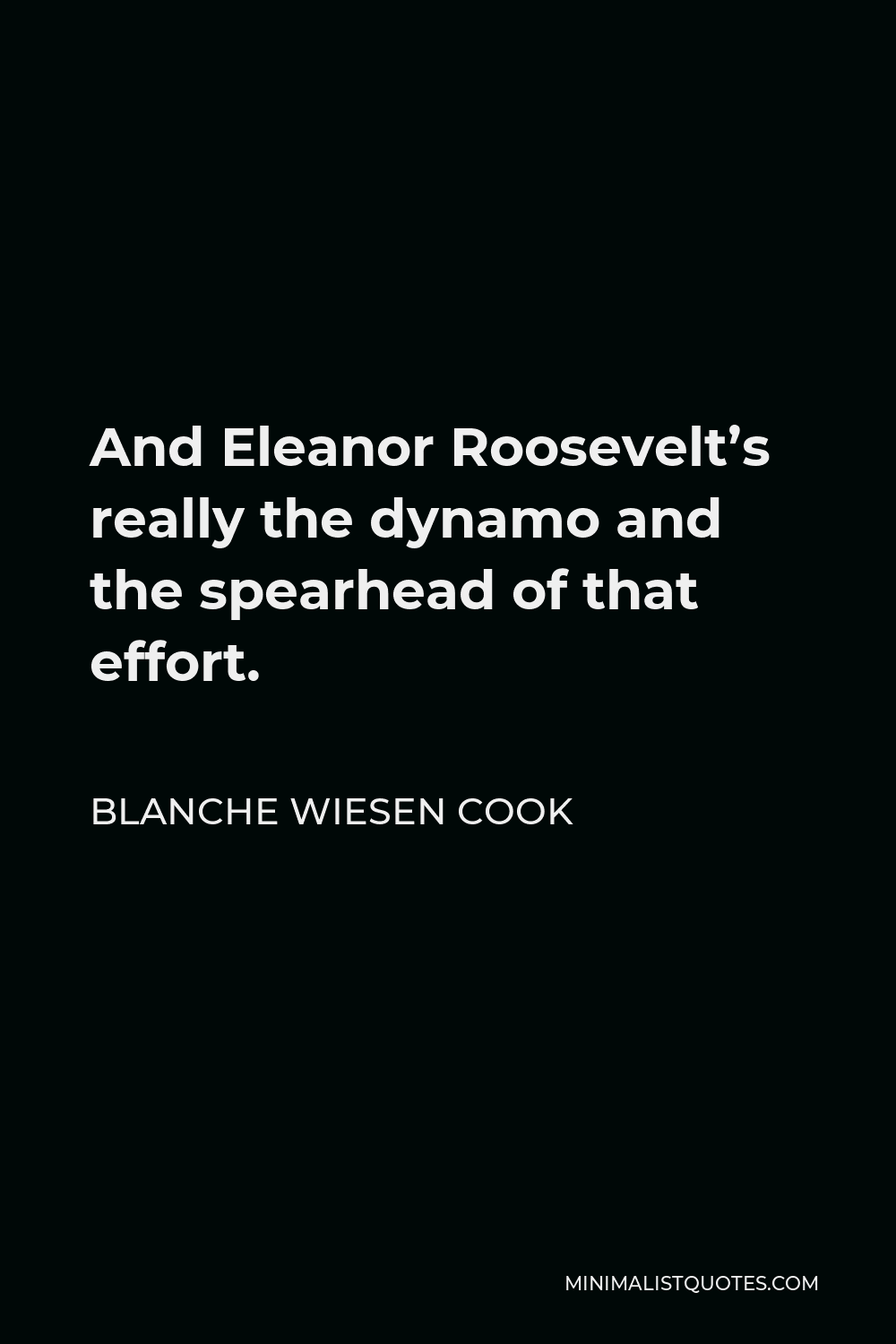
And Eleanor Roosevelt’s really the dynamo and the spearhead of that effort.
BLANCHE WIESEN COOK -





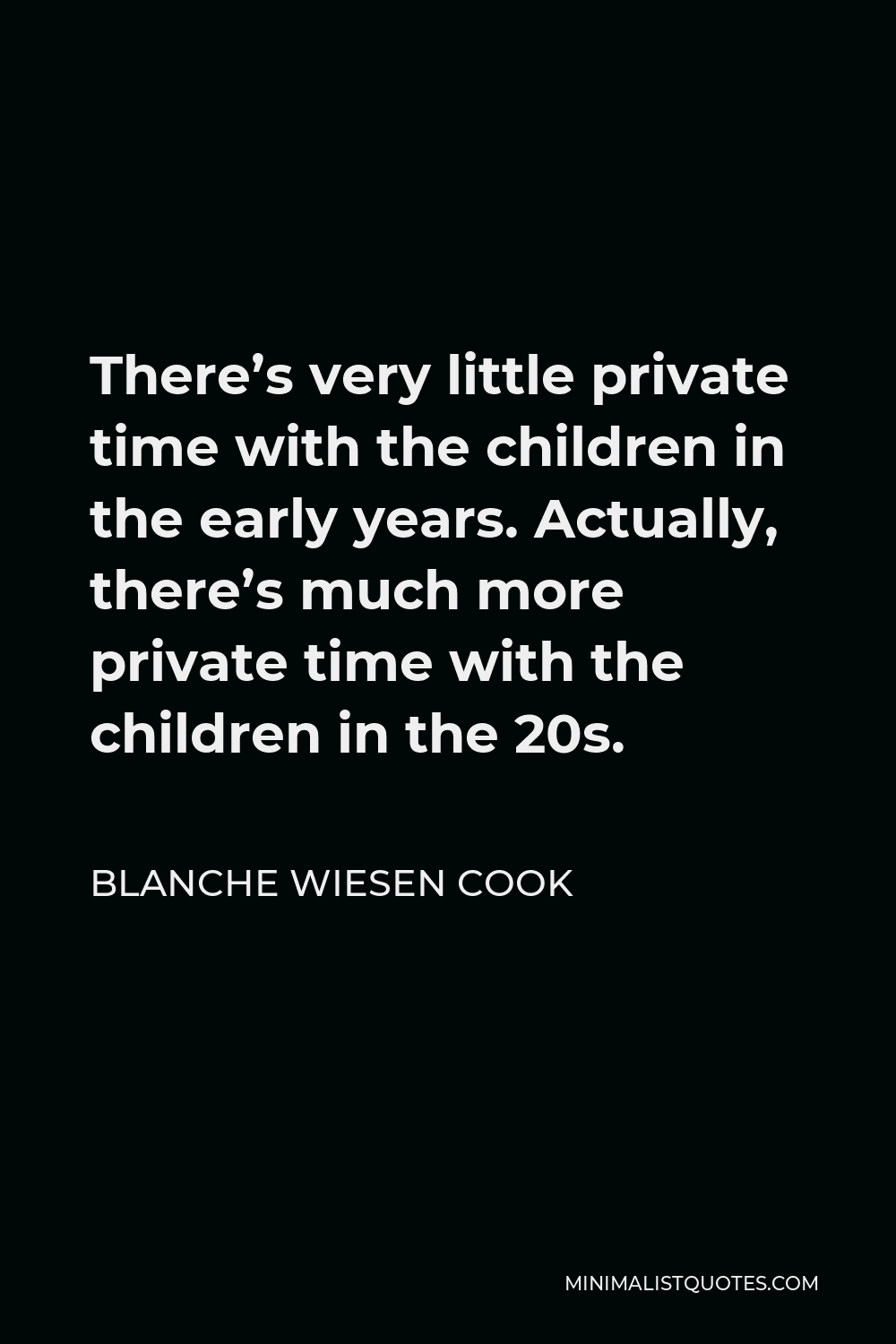
There’s very little private time with the children in the early years. Actually, there’s much more private time with the children in the 20s.
BLANCHE WIESEN COOK -





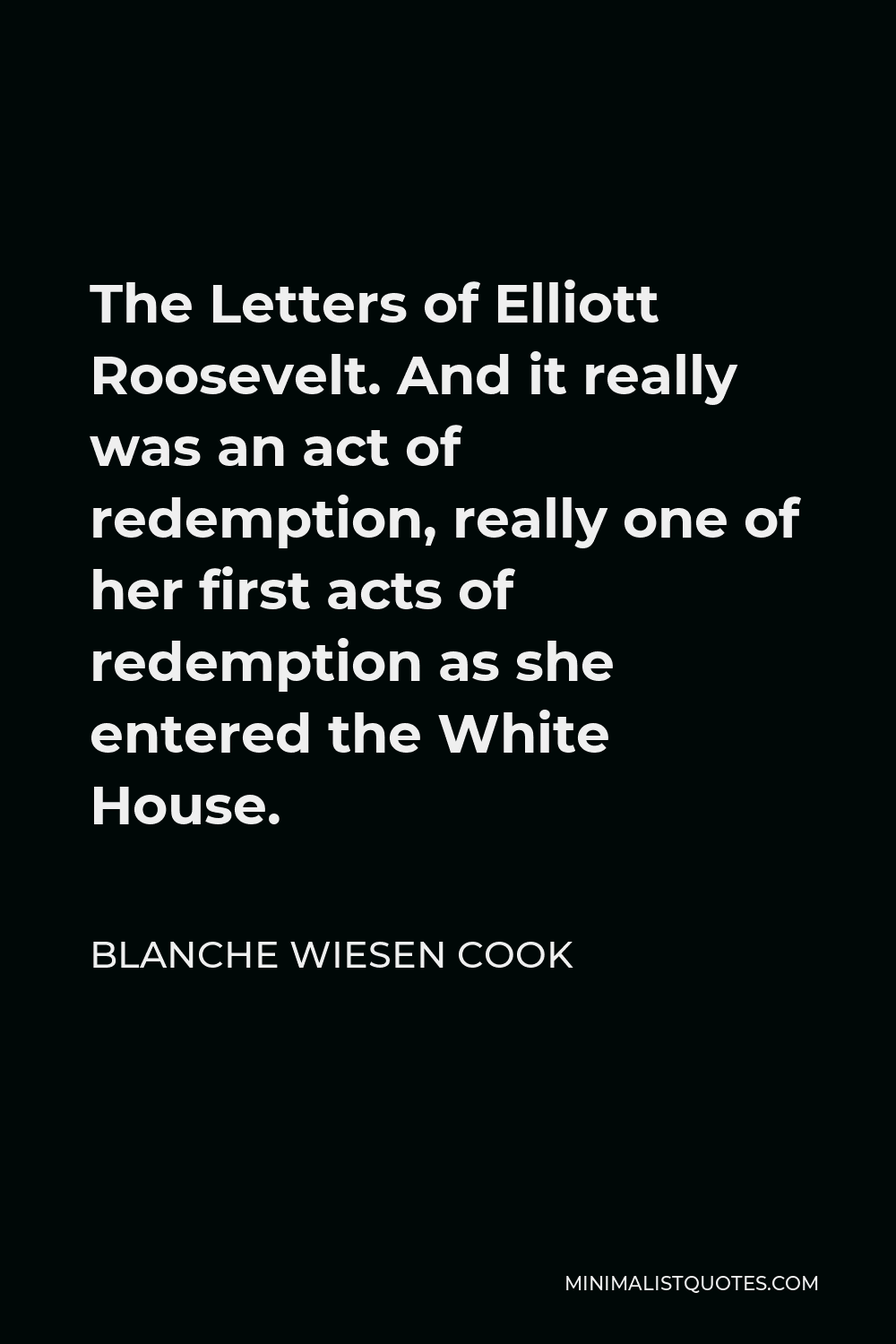
The Letters of Elliott Roosevelt. And it really was an act of redemption, really one of her first acts of redemption as she entered the White House.
BLANCHE WIESEN COOK -





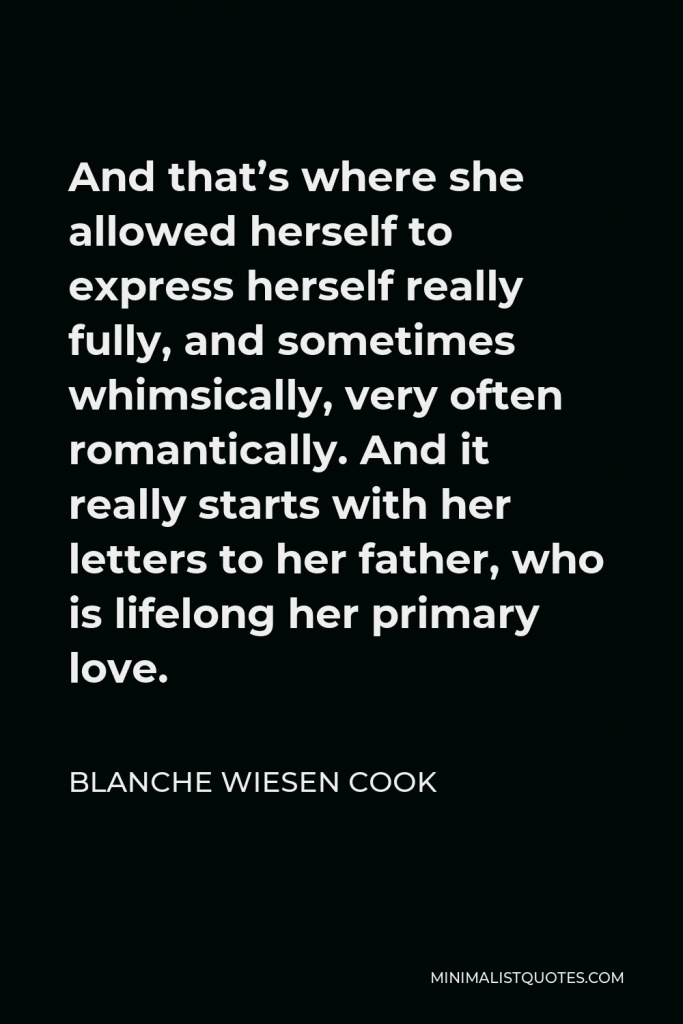

And that’s where she allowed herself to express herself really fully, and sometimes whimsically, very often romantically. And it really starts with her letters to her father, who is lifelong her primary love.
BLANCHE WIESEN COOK -





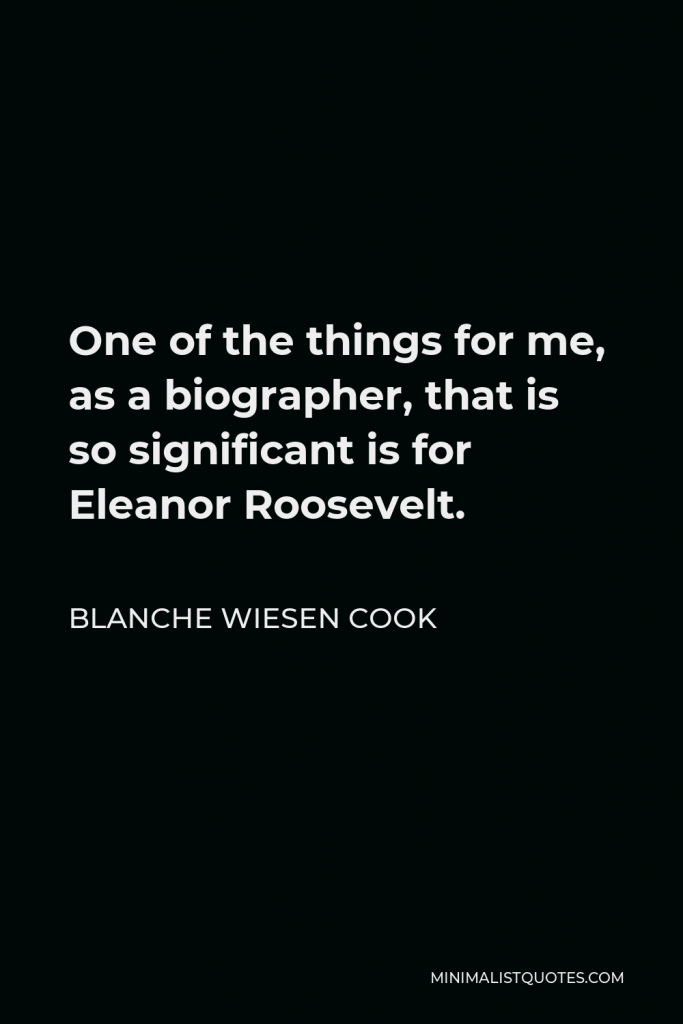

One of the things for me, as a biographer, that is so significant is for Eleanor Roosevelt.
BLANCHE WIESEN COOK -





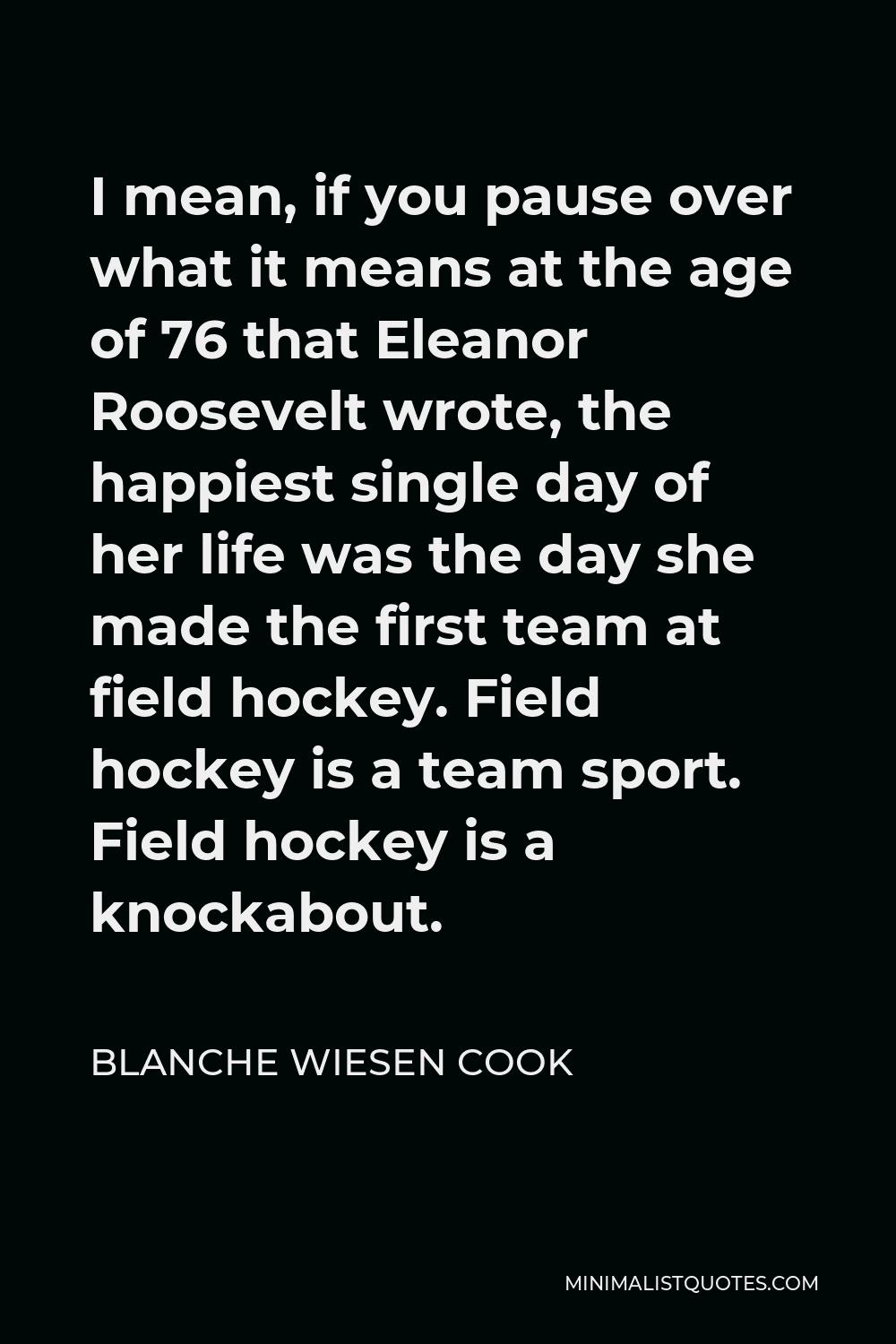
I mean, if you pause over what it means at the age of 76 that Eleanor Roosevelt wrote, the happiest single day of her life was the day she made the first team at field hockey. Field hockey is a team sport. Field hockey is a knockabout.
BLANCHE WIESEN COOK -





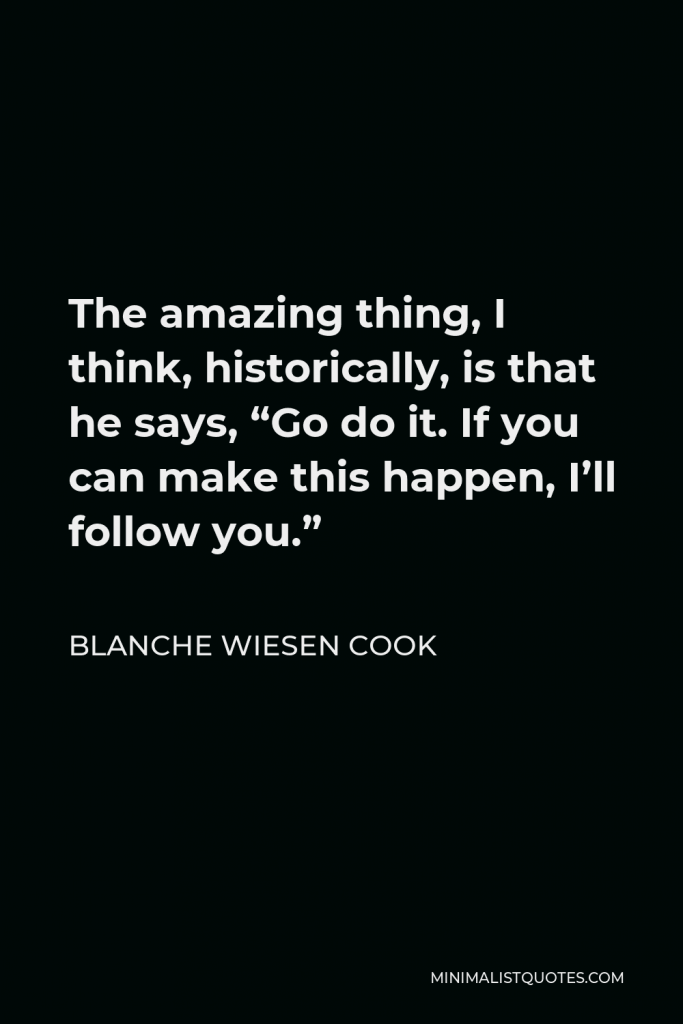

The amazing thing, I think, historically, is that he says, “Go do it. If you can make this happen, I’ll follow you.”
BLANCHE WIESEN COOK -






I think FDR was very dashing and charming and debonair, and probably reminded her of her father. A great bon-vivant. He loved to party.
BLANCHE WIESEN COOK -





![Blanche Wiesen Cook Quote - So she [Eleanor Roosevelt] is an amazing First Lady. What other First Lady in U.S. history has ever written a book to criticize her husband’s policies?](https://minimalistquotes.com/wp-content/uploads/2023/03/so-she-eleanor-roosevelt-is-an-amazing-first-lady--683x1024.jpg)

So she [Eleanor Roosevelt] is an amazing First Lady. What other First Lady in U.S. history has ever written a book to criticize her husband’s policies?
BLANCHE WIESEN COOK
